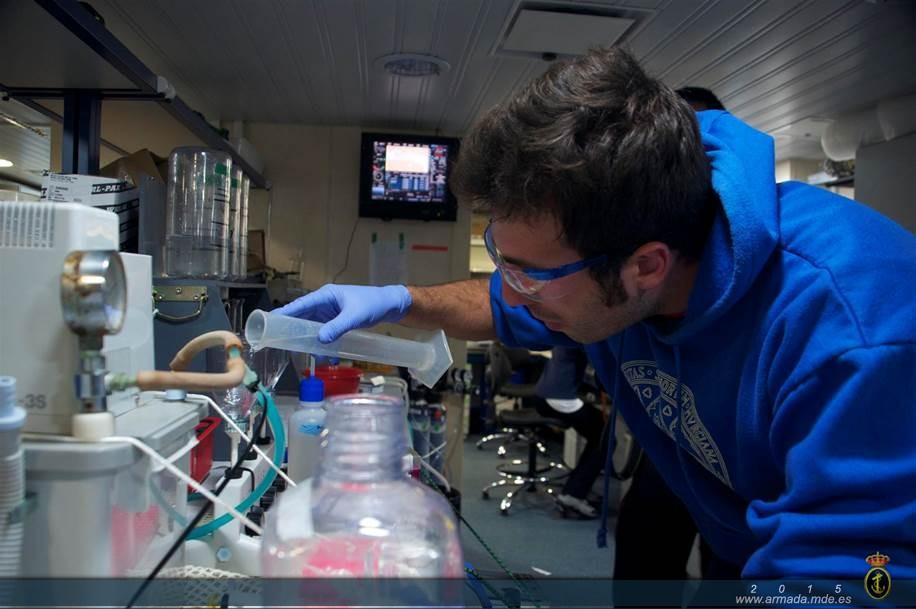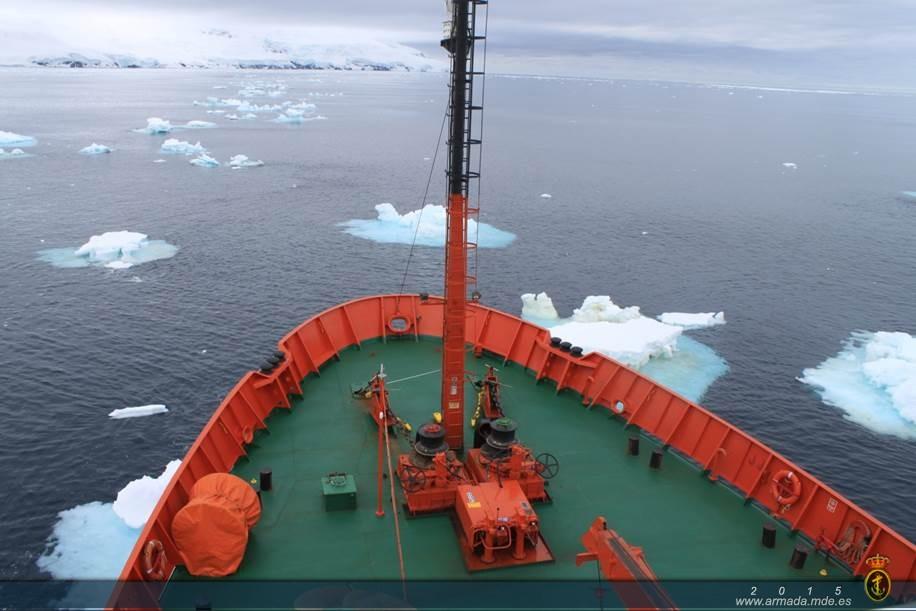The scientific project ‘Pegaso’ concludes on board the oceanographic research ship ‘Hespérides’
Wednesday, February 11, 2015
The scientific project ‘Pegaso’ studying the relation between marine chemical processes and the formation of clouds, conducted on board the oceanographic research ship ‘Hespérides’, has just concluded. In far off seas, marine life is the main source of particles that end up forming clouds.
The project, managed by the CSIC’s Instituto de Ciencias del Mar, has been carried out on board the Spanish Navy ship since her departure from the Argentinian port of Ushuaia.
The project team was made up of 29 biologists, physicians and chemists from Germany, England, Ireland, Finland, Italy, Argentina, Canada and Spain. The researchers studied the diversity and activity of the plankton, gas emissions, and the size, shape and chemical composition of atmospheric particles and cloud droplets.
During the ‘Pegaso’ project the ‘Hespérides’ visited many marine regions with great biological activity and clear and clean environments. Plankton samples were taken from areas around the South Orkney Islands, South Georgia Islands and the Palmer Archipelago.
Part of the sample collection activities were conducted within the Argentinian Exclusive Economic Zone, so a naval officer from that nation embarked on board the ‘Hespérides’ as an observer.
Most of the 38 day’s runs were among ice floes, so the crew took the opportunity to train in the difficult art of navigation through icy waters. After concluding the project, the ship headed towards Ushuaia for a 7-day logistic port of call.




 + 1
+ 1

